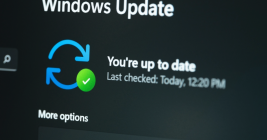Whistleblower: DOGE Siphoned NLRB Case Data
A security architect with the National Labor Relations Board (NLRB) alleges that employees from Elon Musk’s Department of Government Efficiency (DOGE) transferred gigabytes of sensitive data from agency case files in early March, using short-lived accounts configured to leave few traces of network activity. The NLRB whistleblower said the unusual large data outflows coincided with multiple blocked login attempts from an Internet address in Russia that tried to use valid credentials for a newly-created DOGE user account.













